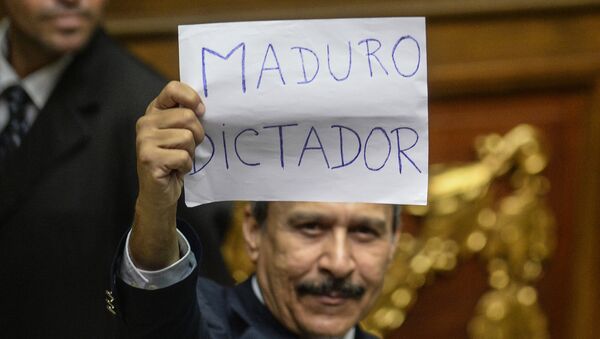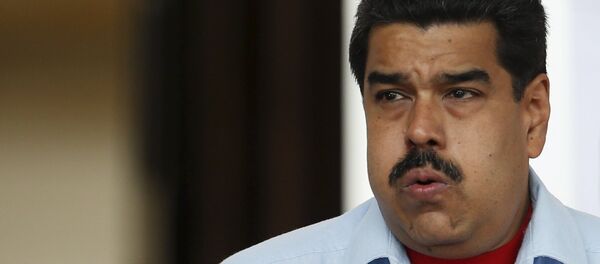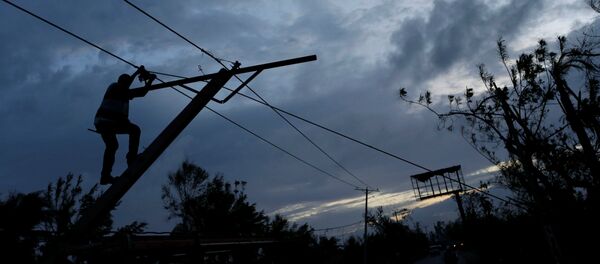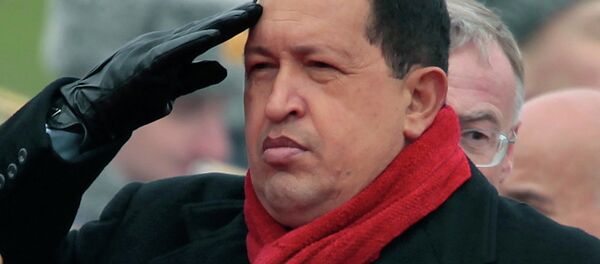On Sunday opposition lawmakers in the country's National Assembly declared that the Venezuelan government had forced a "rupture of the constitutional order" by blocking efforts to hold a referendum that could remove Maduro from power.
The Venezuelan opposition, which took control of the National Assembly in January, also announced their intention to push for impeachment proceedings against Maduro, who took office in 2013 following the death of Hugo Chavez.
The opposition is seeking to collect enough signatures to hold recall referendum on Maduro's presidency, in order to oust him from power.
Gelfenstein, who previously served as Director of International Relations in the Venezuelan government, told Sputnik Mundo that the opposition is carrying out "extreme measures," which "don't have much internal influence" because of a lack of popular support.
According to Venezuela's constitution, such a referendum can be held halfway through a presidential term, if opponents can obtain signatures of support from one percent of voters in each of Venezuela's 24 states.
However, last week Venezuela's electoral authorities announced that the collection of signatures had been suspended due to fraud allegations.
Gelfenstein said that for legal reasons, any referendum on Maduro's presidency could not be held earlier than the first quarter of 2017. In their effort to quicken the process, the opposition has committed electoral fraud.
"That's why they wanted to speed up the collection of signatures, they made mistakes in the records which classed as fraud from a legal point of view," the expert explained.
"They promised to overthrow President Maduro within six months and resolve the economic crisis in the short-term," and also expected "the capitulation of the armed forces, which would weaken the government," Gelfenstein said.
"All this has started to create divisions within the opposition, who are resorting to extreme measures. Some of them have entered into alliance with Colombian paramilitary groups and criminals who are willing to commit violent acts against Chavist social leaders, members of the security services and the military. The other part of the opposition has declared itself to be democratic, but doesn't reject violence as a political measure, which is a contradiction."
Gelfenstein said that the maneuvering to overthrow the Venezualan President faces a tougher task than in neighboring Brazil, where President Dilma Rousseff was impeached on August 31.
"In contrast to Brazil, there plotters don't have support from the judiciary, nor from the organs of the military, so they aren't able to form the conditions for a coup like there was in Brazil," the analyst said.
"The revolution will continue to win despite the constant pretentions of the right which is trying to take over power by unconstitutional means," Maduro said in a video message on Sunday.
In May Maduro condemned the impeachment process against then-Brazilian President Dilma Rousseff as a US-backed conspiracy to undermine the Latin American left.
"I have no doubt that behind this coup is the label 'made in USA,'" he told Venezuelan television.
"Powerful oligarchic, media and imperial forces have decided to finish with the progressive forces, the popular revolutionary leaderships of the left in the continent," the President said.





